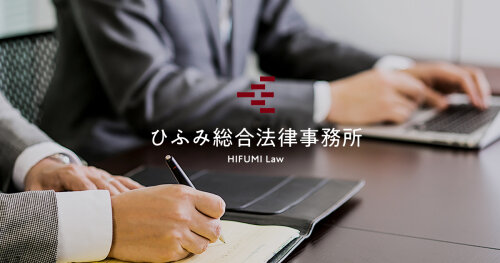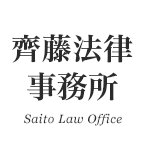Best ADR Mediation & Arbitration Lawyers in Tokyo
Share your needs with us, get contacted by law firms.
Free. Takes 2 min.
List of the best lawyers in Tokyo, Japan
About ADR Mediation & Arbitration Law in Tokyo, Japan
Alternative Dispute Resolution (ADR) in Japan, particularly in Tokyo, serves as a popular means for resolving disputes outside traditional court litigation. ADR encompasses various methods, primarily mediation and arbitration, aimed at facilitating a settlement between parties. Mediation is a voluntary and non-binding negotiation process facilitated by a neutral third party, whereas arbitration involves a binding decision made by an arbitrator after considering the evidence and arguments from both sides. Tokyo has become a hub for ADR largely due to its efficient legal framework and the presence of notable arbitration institutions like the Japan Commercial Arbitration Association (JCAA).
Why You May Need a Lawyer
While ADR processes are designed to be less formal and more cooperative than court trials, there are several reasons you might need legal assistance. A lawyer can help gauge the strength of your case, assist in preparing necessary documentation, and represent your interests during mediation or arbitration sessions. Legal experts are particularly beneficial in complex cases involving commercial contracts, intellectual property disputes, or cross-border issues where the interpretation of Japanese law is crucial. Furthermore, navigating the nuances of ADR clauses and understanding the implications of a binding arbitration award often require professional legal guidance.
Local Laws Overview
In Japan, ADR is governed by multiple laws and regulations to ensure fair and equitable resolution processes. The Arbitration Act of 2003 is a pivotal piece of legislation that aligns with international standards, facilitating arbitration transparency and enforceability within Tokyo. Meanwhile, the promotion of mediation is supported by the Civic Mediation Law, which outlines mediator trainings and ethical standards. The Japanese legal system acknowledges the enforcement of both domestic and international arbitration awards, bolstering Tokyo's reputation as an arbitration-friendly city.
Frequently Asked Questions
What is the difference between mediation and arbitration?
Mediation is a non-binding process where a mediator assists the parties in reaching a mutual agreement. Arbitration is a binding process where an arbitrator makes a decision after considering the arguments and evidence.
Do I need to be in Tokyo to participate in ADR proceedings?
In most cases, physical presence is not required as Tokyo ADR institutions often accommodate remote participation through video conferences and other virtual means.
How is an arbitrator selected?
Parties can agree on a preferred arbitrator or use a nomination process facilitated by the administering ADR institution in accordance with their rules and procedures.
Is arbitration in Tokyo confidential?
Yes, ADR proceedings, particularly arbitration, are generally confidential, aiming to protect the interests and privacy of the parties involved.
Can an arbitration award be appealed?
Arbitration awards are generally final and binding, with limited grounds for appeal or annulment, such as evidence of procedural misconduct or bias.
How long do ADR proceedings usually take in Tokyo?
The duration can vary, with mediation often resolved in weeks to a few months, and arbitration potentially taking several months to complete, depending on case complexity.
What costs are involved in ADR?
The costs can include administrative fees, arbitrators' fees, and legal fees, which vary by the institution and the case specifics.
Are there local ADR institutions in Tokyo?
Yes, Tokyo hosts several ADR institutions like the Japan Commercial Arbitration Association (JCAA) and the Tokyo Maritime Arbitration Commission, renowned for their efficient dispute resolution services.
Is participation in mediation or arbitration mandatory in Tokyo?
Participation is generally voluntary unless an existing contract specifies ADR as a prerequisite for formal litigation.
Can foreign parties engage in ADR in Tokyo?
Yes, foreign parties can participate in ADR proceedings in Tokyo and often choose this venue due to its strategic location and legal expertise in international disputes.
Additional Resources
For those seeking further information on ADR processes in Tokyo, the Japan Commercial Arbitration Association (JCAA) and the Japan International Mediation Center (JIMC) provide valuable resources and guidance. Additionally, the Japanese Ministry of Justice offers insights and updates on relevant legal frameworks and policies. Legal associations like the Tokyo Bar Association can also connect individuals with experienced ADR practitioners.
Next Steps
If you require legal assistance in ADR Mediation & Arbitration, start by consulting with a lawyer specializing in ADR practice. Conduct thorough research or seek recommendations to find a reputed legal professional in Tokyo. Prepare all relevant documents and information pertaining to your case, and don’t hesitate to reach out to local ADR institutions for guidance on initiating mediation or arbitration proceedings.
Lawzana helps you find the best lawyers and law firms in Tokyo through a curated and pre-screened list of qualified legal professionals. Our platform offers rankings and detailed profiles of attorneys and law firms, allowing you to compare based on practice areas, including ADR Mediation & Arbitration , experience, and client feedback.
Each profile includes a description of the firm's areas of practice, client reviews, team members and partners, year of establishment, spoken languages, office locations, contact information, social media presence, and any published articles or resources. Most firms on our platform speak English and are experienced in both local and international legal matters.
Get a quote from top-rated law firms in Tokyo, Japan — quickly, securely, and without unnecessary hassle.
Disclaimer:
The information provided on this page is for general informational purposes only and does not constitute legal advice. While we strive to ensure the accuracy and relevance of the content, legal information may change over time, and interpretations of the law can vary. You should always consult with a qualified legal professional for advice specific to your situation.
We disclaim all liability for actions taken or not taken based on the content of this page. If you believe any information is incorrect or outdated, please contact us, and we will review and update it where appropriate.














